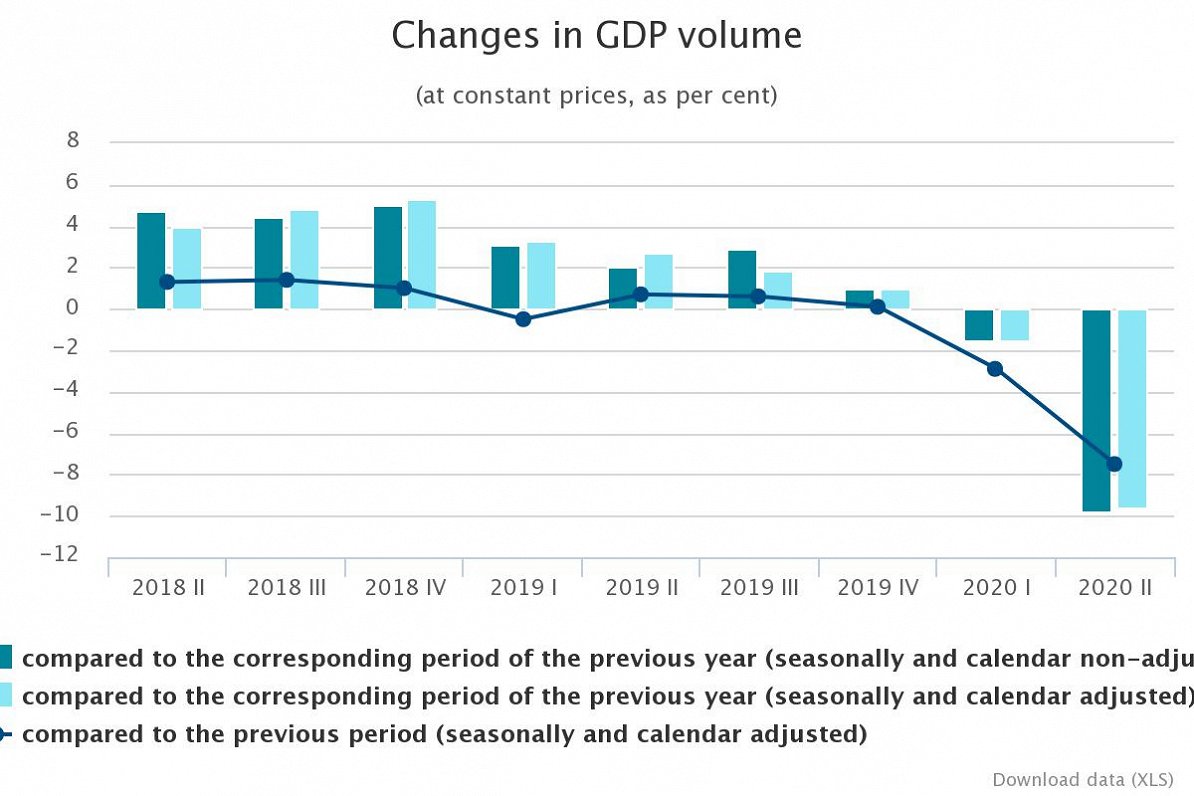A flash estimate from the Central Statistical Bureau (CSB) shows that in the second quarter of 2020, compared to the second quarter of 2019, gross domestic product (GDP) volume decreased by 9.8 % (according to seasonally and calendar non-adjusted data) as the coronavirus took its toll.
According to provisional calculations, the GDP was affected by output drop in producing sectors of 3.8 % and in services sectors – of 11.0 %, of which in retail trade – of 1.6 %. Also, the volume of taxes on products collected reduced.
Compared to the 1st quarter of 2020, GDP fell by 7.5 % (according to seasonally and calendar adjusted data).
''[The] COVID-19 crisis in time-series analysis area at the moment are considered as occurrence that is not seasonal, therefore, the impact of the crisis is not excluded from the data when carrying out seasonal adjustment. It must be taken into account that during the crisis both unadjusted and seasonally adjusted data may be potentially exposed to greater data revisions than they were in a pre-crisis period," said the CSB.
Commenting on the data, Swedbank said:
"Latvia is doing well at managing the crisis so far. There is still a comparatively low number of cases, the measures are generally being relaxed further, and several parts of the economy seem to have recovered close to levels of last year. The economy suffered markedly less that the rest of euro zone, but more than neighboring Lithuania.
"Perhaps, having faced milder restrictions during the start of Q2 than Lithuanians, Latvian consumers are also less eager to “recover the lost ground” as restrictions are lifted. Going forward, July seems to be a month of further recovery. However, the skies are gloomy. The rest of Europe has fared a lot worse than the Baltics and is seeing a surge in Covid-19 cases lately. This is not good news for the Baltic open economies, whose fortunes depend on their regional partners," said Swedbank.



























